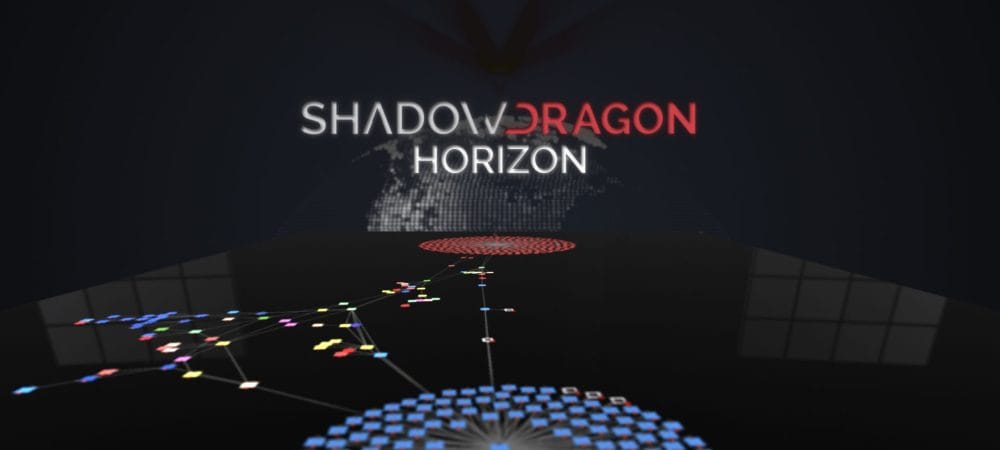ShadowDragon’s most recent podcast dove into the complexities of election monitoring and security. In this episode, special guest Bryeanne (Brye) Ravettine shared her insights into the world of election intelligence, the challenges analysts face in the digital era and what could be in store in the future. Brye, an intelligence analyst with over a decade of experience, brings a wealth of knowledge about past U.S. presidential elections, including those in 2016 and 2020, as well as various state and local elections.
The conversation begins by emphasizing the global relevance of election safety, mentioning recent elections in the Netherlands and the upcoming United States Presidential election. The podcast quickly moves into a discussion about the different categories of people and sectors that could be affected during election season. Brye identifies three primary groups at risk during elections: the commercial and private sector, state election departments, and first responders.
Businesses, especially those in major cities, can be affected during election periods, particularly if protests escalate into riots. Brye explains how companies may become targets if their leadership has taken a public political stance, or simply by virtue of their location. Opportunistic criminals might also take advantage of the chaos during these times to commit crimes. Brye notes how sometimes, even politically neutral institutions, such as museums, might become targets due to their visibility and symbolic value.
For state election departments, the primary concern is ensuring the integrity of the electoral process. These departments manage polling stations, poll workers, and the dissemination of accurate information. They must also combat misinformation and disinformation that can disrupt the voting process. Imposter accounts and false narratives about polling station hours or locations can severely damage public trust in the system. Brye notes that in some states, even posting a selfie with a filled-out ballot is illegal due to concerns about voter coercion – so know and educate yourself on what is allowed in your state and county. Election departments must remain vigilant and respond swiftly to false information.
Law enforcement and first responders are often on the front lines during elections, especially when protests occur. Their job is particularly challenging, as protests can quickly escalate into violent confrontations. Brye emphasizes the crucial role of law enforcement in maintaining peace and ensuring the safety of the public, especially as protests or riots develop.
The ShadowDragon team emphasized the crucial role that intelligence analysts play in monitoring election-related activities. Much like dispatchers, their job is to sift through a deluge of information to identify legitimate threats. This involves filtering out false positives and prioritizing threats based on their immediacy and potential impact. Analysts must be adept at identifying credible threats and relaying that information to the appropriate authorities for action.
One of the main tools analysts use is social media monitoring. Platforms like Facebook, Instagram, TikTok, and Reddit are common arenas where election-related conversations occur. Hashtags are particularly useful for tracking trends and sentiments. During the 2020 elections, hashtags like #VoteBlueNoMatterWho and #VoteRedOrBeDead became rallying cries for different political factions. By following these digital breadcrumb trails, analysts can identify the key players behind online narratives and misinformation campaigns.
A key challenge that arises is determining where to focus attention on the vast expanse of the internet. With multiple social media platforms and forums, intelligence teams must prioritize based on where the most significant discussions and potential threats are occurring. Brye explains that some forums are more niche and may not require immediate attention, but mainstream platforms with larger audiences are often where misinformation spreads more widely and quickly.
The episode also touches on the difficulties of combating election-related misinformation and disinformation. The team discusses a case where a Twitter user who, in a past election, convinced followers to vote via text message, which led to the nullification of those votes. Such misinformation campaigns can be incredibly damaging, and it’s essential for state and local election officials to stay on top of these narratives and correct them promptly.
The team also discusses the period after the elections, which is often just as volatile as the run-up to voting day. Regardless of the outcome, there will always be factions of the population that feel dissatisfied or disenfranchised, leading to potential protests or even riots. Brye discussed the post-election unrest following both the 2016 and 2020 U.S. elections and warns that such unrest is likely to occur again.
One of the newer concerns for election security is the rise of artificial intelligence, particularly in the form of deepfakes. As technology becomes more advanced, it’s increasingly difficult to distinguish between genuine content and fabricated material designed to mislead or manipulate public opinion. This adds yet another layer of complexity to the task of monitoring and ensuring election integrity. Generative AI can be generated and disseminated at scale – making it all the more dangerous in drowning out true information in the digital space.
This episode of the Shadow Dragon podcast provides a thorough examination of the myriad challenges facing those who work behind the scenes to ensure safe and secure elections. From social media monitoring to countering misinformation and preparing for post-election unrest, the responsibilities of intelligence analysts, law enforcement, and state election departments are both extensive and crucial. As elections become more digitally influenced, the need for advanced tools and proactive strategies to combat disinformation and protect public safety will only continue to grow.
Listen to the full podcast episode, here: https://podcast.shadowdragon.io/navigating-election-monitoring-with-osint
To learn more about Horizon™™™™® Monitor, visit: https://shadowdragon.io/monitor/
Request a free trial for upcoming elections, here: https://shadowdragon.io/about/contact-us/
Remember to visit your local official state or local website for timely, correct updates on your local elections.





